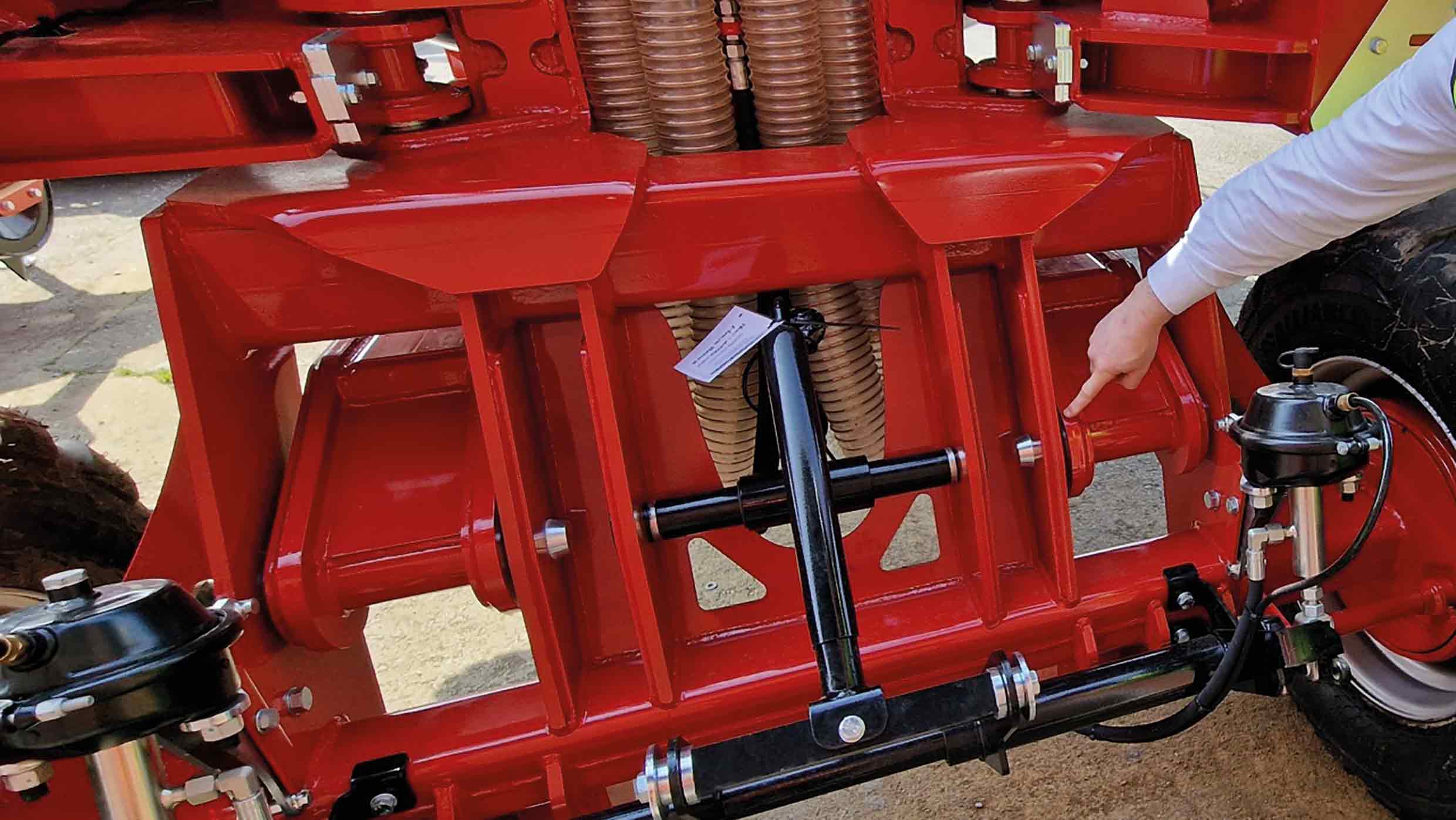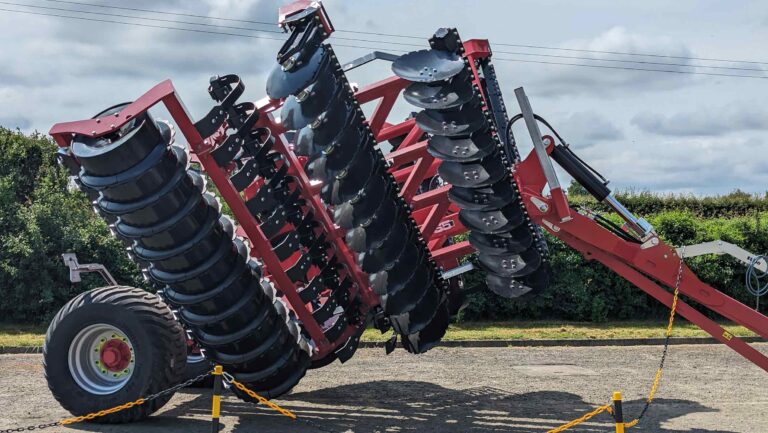Bearings can be a source of contention. They are a small part of a machinery build, yet they take up a disproportionate amount of maintenance time.
Changing bearings can be tricky and awkward, and just keeping bearings moving with lubrication can result in minutes of downtime every day – something that quickly adds up when the pressure is on.
Sumo UK was aware of the issues that could come from choosing the wrong bearings. Its cultivation equipment can weigh more than 10 tonnes, with multiple pivot points for folding wings and at the drawbar to lift the machines out of work at headland.
The company started to work with Igus in 2017, a German-owned motion plastics manufacturer with a UK subsidiary that creates lubrication-free polymer bearings, among a host of other products for various industries.
According to Sumo’s quality manager, Tim Lord, the change to Igus bearings from Oilite powdered bronze bearings has made a noticeable difference in the reliability.
“We’ve seen almost no warranty claims when it comes to bearings since moving to the Igus range,” he says. “We use the bearings at the wing articulation points. After a certain level of work, we would expect to see wear around the 90deg of movement, but these don’t seem to have this problem.
“When we get machines in for refurbishment, we would expect to change the bearings as a matter of course,” he adds.
“We recently had a five-year-old machine in for a refurb and when we checked the Igus bearings, they were like new.”
Igutex
Sumo uses the TX1 and TX3 Igutex bearings, previously branded as part of the Iglidur product range. These are developed using a composite material using a blend of fibres and resins.
Instead of being injection moulded, the materials are wound together creating two layers; a gliding layer that enables the bearing to move without lubrication, and a base that protects the inner layer.
Igutex specialist Sam Newton says the product range is able to withstand up to 180 megapascals (MPa) of pressure, as well as temperatures from -60C up to 120C.
“This makes them ideal for industries that work in difficult conditions, such as agriculture. If you look at our TX2 range, that has a gliding layer that is eight microns thick, which our tests have shown relates to a kilometre of bearing movement before a replacement would be needed.
“If you look at the short distance that the bearing on the wing of a cultivator would move, that translates to multiple seasons of uninterrupted work.”
With no moulds required, the company can create bespoke Igutex bearings for any industry. The largest mass-produced unit has a 1m diameter, but Sam says there is no upper limit to what Igus can produce.
“We work with customers to produce what they need and turn around new projects within an eight-week lead time in most cases.”
As Igus reportedly has the world’s largest testing centre for this industry, the company can also provide detailed wear rates to all of its customers for every model of bearing, with each one subjected to a series of tests, including shock loads and edge loading.
Both Sumo and Igus say the benefits aren’t just an extended maintenance period. Because the entire Igus portfolio does not require lubrication, this results in more efficient manufacturing as grease channels and nipples do not need to be drilled into the machines.
This then benefits the end user as multiple greasing points are eliminated from daily maintenance schedules, substantially reducing time spent and the amount of lubrication purchased and used.
“Igus bearings cost us about 30% more than standard metal bearings,” says Tim. “However, this is a tiny percentage of the overall cost of the machine and is outweighed by the other benefits.”

Integrating across the range
Tim adds that the company is looking to integrate Igus products across the full Sumo range, with smaller units being used in drill coulters. “We have a stock of our previous Oilite bearings, but once these have been used, we believe Igus bearings are the best option for us.”
When the company initially saw the benefit of the Igus bearings, Tim oversaw a series of in-house tests and comparisons. “Straightaway we could see these products were going to wear slower, with no difference in load bearing and several benefits to us at the manufacturing stage.”
The only change they made was a switch in some cases to the TX3 instead of the TX1, which has a thicker gliding layer and could be reamed more quickly before being fitted to a machine.
“It took a lot of proving to myself to accept that Igus was the best choice,” Tim says. “I have a mechanical engineering background and had always believed you couldn’t beat metal when it came to load bearing and wear rates.”
Matthew Aldrige, Igus UK managing director, says this is one of the barriers to the company gaining a foothold in the farming industry.
“Farmers still have the mindset that metal is best, so it’s great to work with a company like Sumo because it has a reputation in the UK market. Farmers and contractors will praise the Sumo product, and then we can use that to show the benefit of our bearings.”


